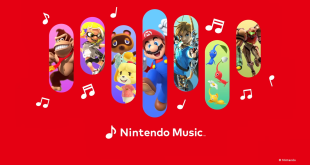There's a buzz of excitement around the KitGuru offices. While everyone seemed to agree that ‘WAP is crap' when the mobile web first bumbled into life, and we all seem OK with the world of 3G – the promise of a ‘4G tomorrow' has us positively grinning with anticipation. But, after hearing an exciting rumour, KitGuru was forced to use a good old fashioned landline to speak with a T-Mobile expert about what to expect next. We like what we heard.
There was a mini-buzz on Facebook last night as people began to notice that their phones and other mobile devices were working smoothly when online. Data just seemed to be flowing better.
Before you knew it, experts were joining in – offering their opinions as to what might be happening – including a BBC presenter (who shall remain nameless and shameless).
While everyone, everywhere seemed to think that 4G was involved – the specifics of how a technology that had not officially launched would be improving life for those who do not have a 4G device was not clear. First, let's do a quick spec-check on where 3G and 4G would/could/should be.
It seems that in order to advertise your network as ‘3G', you need to be able to provide that service with a minimum of 200kb/sec. That's low enough that most current systems in the UK seem to sail past by around 10x the bandwidth. If you check around the web, you will find forum posts from 2-3 years ago, where excited 3G users started to notice that they were passing 2mb/sec at times and even touching 3 or 4mb/sec recently. In the Far East, telecoms companies market the hell out of these improvements with offers for 3.5G and 3.75G etc. Here in the UK, it seems that the networks have been getting better, but we're sticking with the black and white naming strategy of 3G and then 4G (with a little LTE thrown in for good measure, but only because Apple use the term).
So what speeds are people now enjoying?
Well, iPad 3 users on T-Mobile contracts in the London area seem to have been registering speeds in the 15-17Mb/sec range.

.
While it IS possible to explain that kind of improvement within the theoretical framework of 3G, KitGuru suspected that more was going on that met the eye. So we pinged one of our contacts inside T-Mobile – and what we heard was very interesting indeed. To preserve anonymity and make a relatively normal 3 minute phone call seem far more exciting, we will refer to our source as ‘Agent G'. We started with the observed speed bump.
“We're hearing this from a lot of people right now”, Agent G told us with a smiling voice. “There are a few reasons for the improvement and one of them is the fast that EE [T-Mobile plus Orange operating as ‘EverythingEverywhere' – Ed] will be switching on the first 4G network at the end of this month”.
“We have been piloting the switch over for some time and a number of people are already on the 4G network”, explained Agent G. “If you can imagine, part of our testing was to increase the load on the 4G network, so many of the people who were moved across were high bandwidth users”.
Basically, not only has a new network been initialised – creating more capacity anyway – but a significant number of the people who were clogging up the 3G system with high-usage, were moved across earlier to provide ‘load' to help test the EE 4G systems. Bandwidth porkies are already eating from a different bandwidth trough. Interesting.
This brought up a question of billing. If you use today's data plan numbers and then move people across to a network with 10x the capacity of 3G – what will happen with people's bills?
“We were the first to introduce a plan that covers nearly everything, when we launched ‘The Full Monty'”, said Agent G. “The idea was that you could have a single, fixed price tariff that includes all of the stuff that you will normally need”.
“That will be the basis of our 4G contracts”, she said. “With 4G, there is so much bandwidth that we can't use the classic billing method. It needs to be a fixed price if you want to encourage people to use it”.
KitGuru is left a little confused on one thing. We've been beavering away on the basis that our connection to the mobile web was around the 1-2Mb/sec mark, while keenly anticipating a 4G experience that will deliver 10x the performance. Now we're faced with modern devices that can achieve more than 15Mb/sec on the old network. A free upgrade for everyone, everywhere, simply because (a) there's new bandwidth in town and (b) the phattest users have moved across early to the all you can eat ‘download buffet'.

KitGuru says: If the new 4G networks can offer anything like 20-40Mb/sec on the move, with unlimited data plans for less than £50 a month, then the world as we know it will change overnight. Given the ‘tethering' options present on modern devices, the landline broadband operators will come under pressure if every house in the 4G country can flip a switch and suddenly have ‘Mother of all broadband' speeds – without a BT/Sky/TalkTalk contract. Interesting times ahead. We hope that ‘throttling' won't happen on the existing 3G networks (armed with their new speed bump) just as a cheap marketing ploy to get us to move to 4G – but we suspect it will happen.
Comment below or in the KitGuru forums.
 KitGuru KitGuru.net – Tech News | Hardware News | Hardware Reviews | IOS | Mobile | Gaming | Graphics Cards
KitGuru KitGuru.net – Tech News | Hardware News | Hardware Reviews | IOS | Mobile | Gaming | Graphics Cards



19.3b download and 5mb upload on EE in Central London…